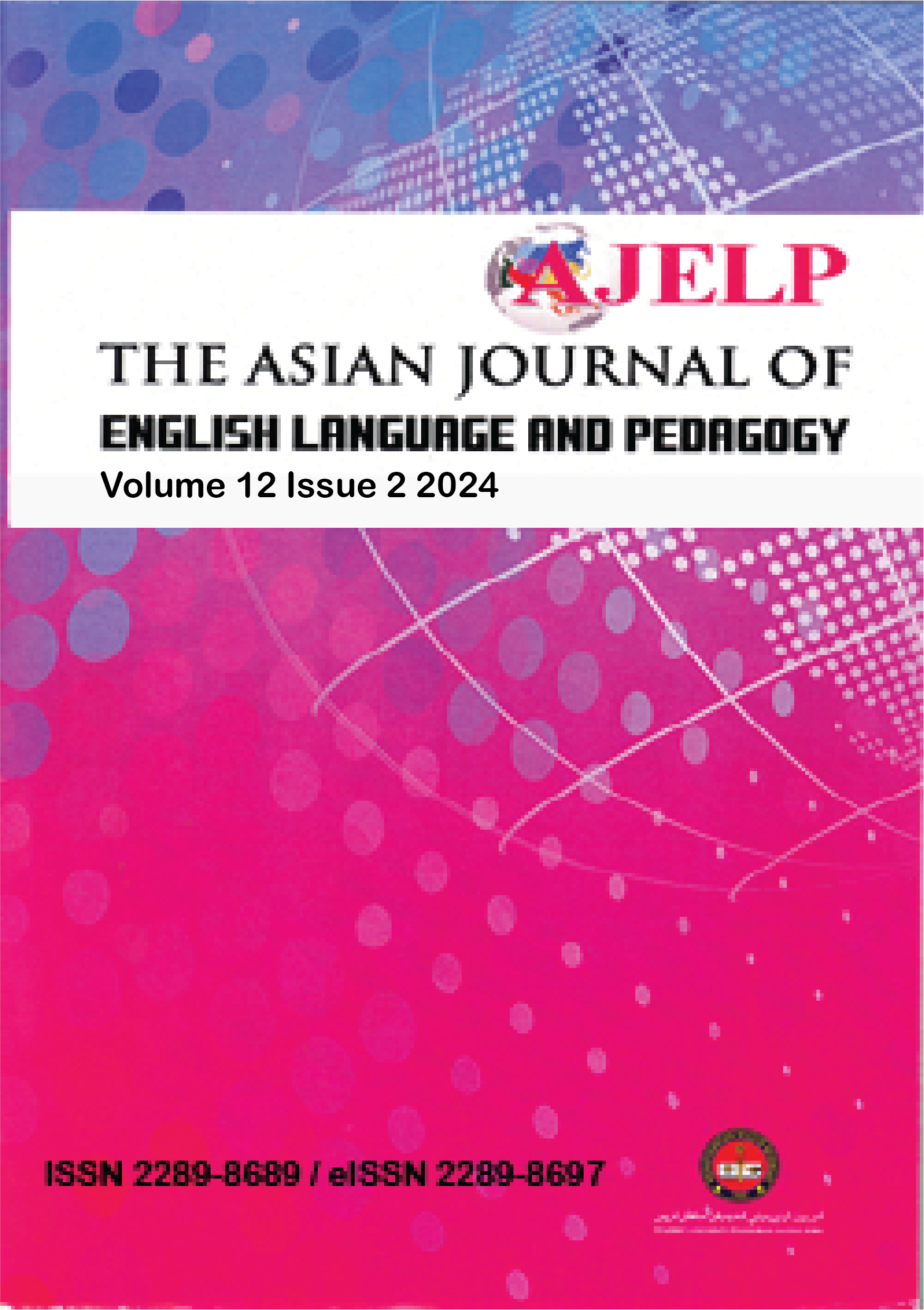The Influence of English Language Pronunciation on Korean Pronunciation among Native Chinese Speakers: An Empirical Study
DOI:
https://doi.org/10.37134/ajelp.vol12.2.11.2024Keywords:
coda, English pronunciation, Korean pronunciation, Native Chinese, second language acquisitionAbstract
This study explores the influence of English pronunciation on Chinese native speakers’ Korean pronunciation. Previous studies indicate that syllable - final consonants are challenging for Chinese speakers in both English and Korean. Among Korean, English, and Chinese, only Korean and English have many syllable - final consonants and consecutive consonants between syllables, while Chinese lacks this feature. Considering the acquisition sequence, English is acquired earlier than Korean in the context of this study. Data was collected through an experimental study and questionnaires. The data was analyzed using SPSS. The results show that Mandarin-speaking Korean learners who are more proficient in English pronunciation are more accurate in identifying syllable-final and consecutive consonants in both English and Korean. On the other hand, students who are less proficient in English are more impacted by their native phonological knowledge, frequently losing final consonants or adding vowels in both Korean and English. The statistics show a statistically significant difference between the perception of syllable-final consonants in Korean and English, as determined by a one-way ANOVA study in SPSS. This study implicates that applying English pronunciation knowledge in Korean pronunciation teaching for positive transfer can enhance the language acquisition.
Downloads
References
Chen, S. W. (2023). Theories and new development of second language speech production. Contemporary Linguistics, 04, 541-561.
Wu, Z., & Lin, M. (2014). Shiyan Yuyinxue Gaiyao. Beijing: Gaodeng jiaoyu chubanshe.
Ding, H. (2014). An experimental study on the pronunciation of German syllable-final consonants by Chinese university students. Journal of the School of Liberal Arts, 03, 176-185.
Shi, H. (2009). Positive transfer of English phonetics. Journal of Anyang Normal University, 1, 101-103.
Zhang, Y. N. (2020). A study on the influence of Chinese learners' English pronunciation on Korean pronunciation. Chungbuk National University, Cheongju.
Li, M. (2015). On the development and characteristics of the interlanguage phonological system—A case study of final plosive pronunciation of Hong Kong English learners. Science, Education, and Culture Journal, 10, 165-168.
Kwon, H. (2017). Language experience, speech perception, and loanword adaptation: Variable adaptation of English word-final plosives into Korean. Journal of Phonetics, 60, 1-19.
Wrembel, M. (2010). L2-accented Speech in L3 Production. International Journal of Multilingualism, 7(1): 75-90.
Lee, H. (2019). Analysis of consonant pronunciation types in Korean by beginner Chinese learners—Focused on syllable-boundary consonants. Grammar Education, 36, 183-202.
Yang, S. (2005). An acoustic and auditory phonetic study of Korean syllable-final stop consonants. Hangul, 269, 77-100.
Yang, S. (2006). An acoustic and auditory phonetic error analysis of Korean syllable-final consonants in Chinese learner language. Korean Language Education, 17(3), 163-183.
Lee, S. (2017). The cognitive effects of second language proficiency on early third language acquisition. German Literature, 58(2), 385-406.
Downloads
Published
Issue
Section
License
Copyright (c) 2024 Zhang Yanan

This work is licensed under a Creative Commons Attribution-NonCommercial-ShareAlike 4.0 International License.





